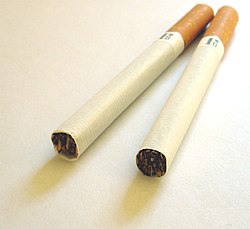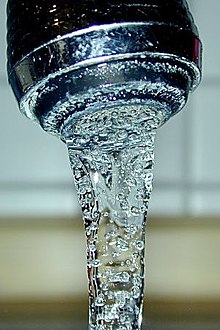 When the nation legalized all drugs within its borders, most critics predicted disaster. But a decade later, drug use has plunged dramatically.
When the nation legalized all drugs within its borders, most critics predicted disaster. But a decade later, drug use has plunged dramatically.
Back in 2001, Portugal had the highest rate of HIV among injecting drug users in the European Union—an incredible 2,000 new cases a year, in a country with a population of just 10 million. Despite the predictable controversy the move stirred up at home and abroad, the Portuguese government felt there was no other way they could effectively quell this ballooning problem. While here in the U.S. calls for full drug decriminalization are still dismissed as something of a fringe concern, the Portuguese decided to do it, and have been quietly getting on with it now for a decade. Surprisingly, most credible reports appear to show that decriminalization has been a staggering success.





 Children exposed to secondhand smoke in their homes face a higher risk of developing attention-deficit/hyperactivity disorder, other behavioral problems and learning disorders, a new study finds.
Children exposed to secondhand smoke in their homes face a higher risk of developing attention-deficit/hyperactivity disorder, other behavioral problems and learning disorders, a new study finds. Atlanta entrepreneur Mike Mondelli has access to more than a billion records detailing consumers’ personal finances — and there is little they can do about it.
Atlanta entrepreneur Mike Mondelli has access to more than a billion records detailing consumers’ personal finances — and there is little they can do about it. Back in 1995, the last time conservative Republicans took control of the House of Representatives, one of the first laws they attacked was the Clean Water Act. As early as today, the House will vote again to undermine that 1972 landmark law, and I hope the results will be the same: a public backlash that stalls environmental rollbacks.
Back in 1995, the last time conservative Republicans took control of the House of Representatives, one of the first laws they attacked was the Clean Water Act. As early as today, the House will vote again to undermine that 1972 landmark law, and I hope the results will be the same: a public backlash that stalls environmental rollbacks. Objectives of the Hearings: To present evidence that the U.S. government’s official investigation into the events of September 11, 2001 is seriously flawed and has failed to describe and account for the 9/11 events.
Objectives of the Hearings: To present evidence that the U.S. government’s official investigation into the events of September 11, 2001 is seriously flawed and has failed to describe and account for the 9/11 events. Theresa Edwards and June Clarkson had headed up investigations on behalf of the Florida attorney general’s office for more than a year into the fraudulent foreclosure practices that had become rampant in the Sunshine State. They issued subpoenas and conducted scores of interviews, building a litany of cases that documented the most egregious abuses.
Theresa Edwards and June Clarkson had headed up investigations on behalf of the Florida attorney general’s office for more than a year into the fraudulent foreclosure practices that had become rampant in the Sunshine State. They issued subpoenas and conducted scores of interviews, building a litany of cases that documented the most egregious abuses. n 1991, Iraqi exiles set up the Iraq National Congress (INC) with funding from the CIA. Under the leadership of Ahmad Chalabi, and flush with tens of millions dollars in US government funding, the INC allied itself with the neoconservatives in Washington and unceasingly beat the drums of war, presenting itself as the popular democratic alternative to Saddam Hussein and feeding faulty intelligence to an eager media and Bush administration.
n 1991, Iraqi exiles set up the Iraq National Congress (INC) with funding from the CIA. Under the leadership of Ahmad Chalabi, and flush with tens of millions dollars in US government funding, the INC allied itself with the neoconservatives in Washington and unceasingly beat the drums of war, presenting itself as the popular democratic alternative to Saddam Hussein and feeding faulty intelligence to an eager media and Bush administration. Hawkish pro-Israel positions have become a litmus test for Republican candidates, particularly in the 2012 presidential campaign. And one of the political operatives driving this phenomenon is none other than Ralph Reed, the disgraced lobbyist who left the Christian Coalition to form Century Strategies.
Hawkish pro-Israel positions have become a litmus test for Republican candidates, particularly in the 2012 presidential campaign. And one of the political operatives driving this phenomenon is none other than Ralph Reed, the disgraced lobbyist who left the Christian Coalition to form Century Strategies. Rules proposed recently by New York State for regulating a controversial form of natural gas drilling are drawing expressions of guarded optimism from the natural gas industry but objections from some environmentalists, who say they do not go far enough in protecting water supplies.
Rules proposed recently by New York State for regulating a controversial form of natural gas drilling are drawing expressions of guarded optimism from the natural gas industry but objections from some environmentalists, who say they do not go far enough in protecting water supplies.






























